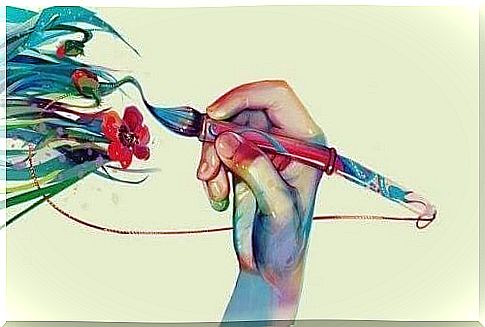Four Techniques For Dealing With Emotions

All emotions arise for a reason, and it is never a good idea to suppress them. It is also never a good idea to let them take control. In this sense, techniques that can help us deal with emotions and keep them under control are important.
Anger is a feeling that is difficult to deal with, because of the energy it fills us with. There are many in the world who let anger take over, and who end up saying and doing things that hurt others. In the same way, fear can also take over and hinder progress. Both of these feelings can therefore negatively affect our quality of life.
Therefore, it is important to know some techniques to deal with our emotions in a better way.
1. Vipassana: A technique for dealing with emotions
Vipassana meditation is based on self-observation. It means “to see things as they are”. In some cultures in India, there is a way to develop the “art of living”. The technique consists of setting aside some time to see oneself from a different perspective.
The idea is to go to a peaceful place, close your eyes, and take a deep breath. You should pay close attention to the air as it is drawn in and blown out of your lungs. The next step is to scan every part of your body mentally. Ideally, this is done every day for a few minutes. It is a daily exercise that develops self-control.

2. Virtual environment
Another technique for dealing with emotions consists of using virtual or imaginary environments. This technique involves exposing yourself to various situations that make you feel particularly vulnerable. After that, you need to evaluate these situations and the feelings you felt.
Some psychologists and institutes have the necessary technological equipment to create such situations digitally. However, this is not the only way to implement this technique.
If you do not have the right technology available, just use your imagination. You can draw or describe in words some of the situations you do not feel you have control over. The idea is to identify what triggers the emotional response. Then you need to try to understand the emotions that arise, why they occur and how you can control them.
3. Art psychotherapy
Art psychotherapy is much more than just a trend. It has actually been around for a long time. Art psychotherapy consists of using different artistic expressions to express your feelings and achieve emotional balance.
This is one of the most effective techniques for controlling emotions, because it encourages emotional expression through creative channels. One must first think through one’s own feelings, before one can express them through writing, painting, sculpture or another form of art. Practicing art psychotherapy regularly will help develop self-control.

4. Self-assessment to deal with emotions
Lack of control over emotions is usually caused by a lack of self-knowledge and self-worth. We feel stressed because we tend to ask ourselves too much, and because we punish ourselves for the mistakes we make instead of focusing on the positive. This stress makes us more vulnerable to elements such as criticism, indifference and demanding situations.
It is a good idea to evaluate yourself weekly or monthly. However, it is not about identifying everything we did wrong in the last week or month. The goal is to identify where we achieved success, and what reasons we may have to congratulate ourselves. This simple exercise helps you to have a more positive self-image, which in turn makes you emotionally smarter.

Unfortunately, these emotion management techniques are not magic. However, you can start to see changes in your life if you start using them. They can help you learn to deal with your emotions, thereby improving your quality of life.









